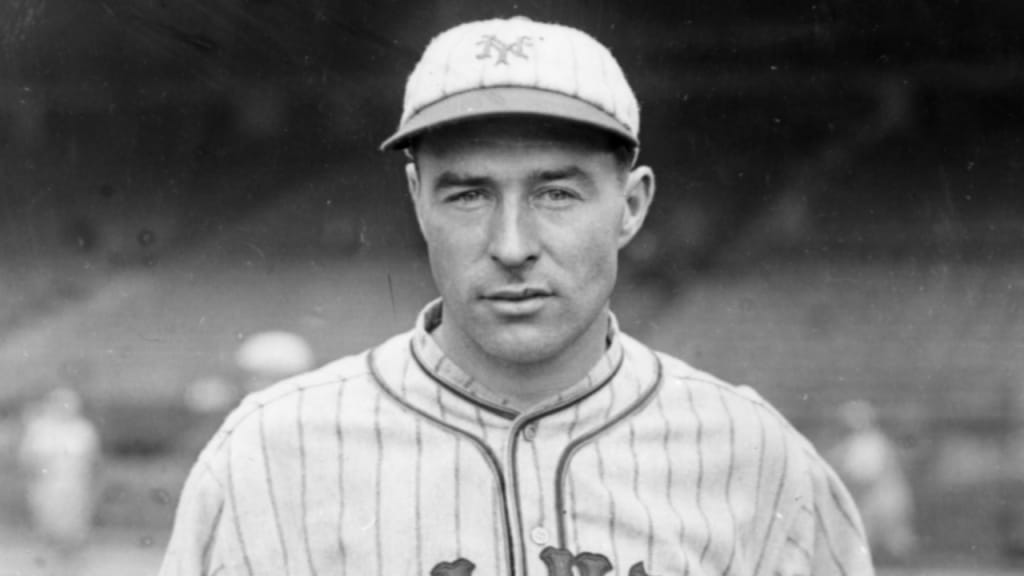
Lefty O'Doul had a .349 lifetime batting average, fourth highest of all-time, in a 11-year big league career that began in 1919. And that might be one of least remarkable things about his fascinating life.
O'Doul was one of the first "scientific" hitters, obsessing over every detail of the mechanics of his craft. He kept notes on opposing pitchers, what they threw and how they tried to get him out, and analyzed movies of himself at the plate. O'Doul was a guru to some of the biggest names in the history of the game, including Ted Williams and Joe DiMaggio, and a pal of Babe Ruth.
O'Doul was immensely popular across the country, but nowhere more so than in his native San Francisco, where he both starred for and managed the Pacific Coast League's Seals. He was a showman, entrepreneur and bon vivant whose youth work and charity only enhanced his legend.
Topping it all off was the fact that O'Doul did much to popularize baseball in Japan. He organized a tour after the 1949 season that helped normalize the relationship between the United States and the country that bombed Pearl Harbor. He was also instrumental in helping convince Japan to form its first professional teams, so it's not a stretch to draw a line connecting O'Doul with future standouts like Hideo Nomo and Ichiro and the 50-some players from that country who have since come to the Major Leagues.
Despite that towering legacy, O'Doul is largely overlooked these days. Which helps make "Lefty O'Doul: Baseball's Forgotten Ambassador" so riveting.
Dennis Snelling, a member of the Society for American Baseball Research who has also written a history of the Pacific Coast League and a biography of Johnny Evers (of Tinker to Evers to Chance fame), does an artful job of toggling back and forth between O'Doul's life story and focusing on the trip to Japan in 1949 that general Douglas MacArthur would later call "the greatest piece of diplomacy ever."
It was the first time since before the war that the American and Japanese flags were flown together.
These broad themes are illuminated throughout by telling details that bring O'Doul's character to life. After getting off to a hot start in 1929, he was asked about leading the league in hitting a week into the season.
"It's something like holding a cake of ice on a sunny street," said O'Doul. "You can't eat it, you can't drink it, and you know it's going to melt soon."
O'Doul was hired to help the actor Gary Cooper become a passable-looking hitter in the film "Pride of the Yankees." He was an honored guest at the wedding of DiMaggio and Marilyn Monroe.
It's a little surprising that the memory of O'Doul's has faded nationally over the years. After all, of the top dozen career averages ever, he's one of only two batters not enshrined in the Hall of Fame. The other is Shoeless Joe Jackson, whose name lives on for his connection to the 1919 Black Sox Scandal.
The biggest reason for that, as Snelling acknowledges, is that O'Doul had just five peak seasons. It also doesn't help that his contributions to growing the game in Japan fall outside the normal qualifications Hall of Fame voters consider.
There's also the fact that while managing the Seals for 17 years, he became so comfortable that he reportedly rebuffed interest from several MLB teams, including the Yankees. Eventually the Bronx Bombers hired Oakland Oaks manager Casey Stengel, who won 10 pennants and seven World Series championships in 12 years.
Don't feel bad for O'Doul, though. He lived a full, rich and interesting life. O'Doul was inducted into the Japanese Hall of Fame in 2002, and he is memorialized at AT&T Park with a plaza and a gate named after him, and he has two plaques dedicated to him. Even the bridge across the estuary from where the Giants play their home games is the Lefty O'Doul Bridge.
And now there's this engrossing, scrupulously-researched new biography to remind -- or enlighten -- fans about the outsized role O'Doul played in the history of the game.